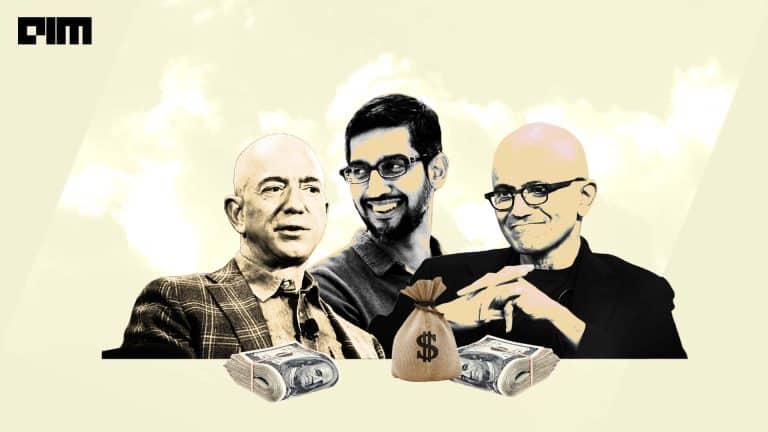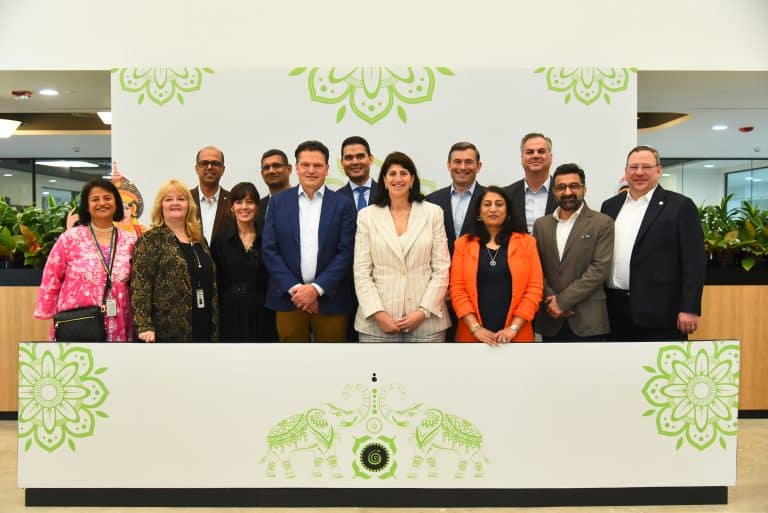Cypher 2023 was jam-packed. The day one of the event witnessed more footfall than we anticipated, close to 1500+ participants and 600+ companies took part in India’s biggest AI conference.
The event kicked off with Karthik Ranganath, general manager of Business IT at Shell R&D, talking about unleashing AI innovations for the better.
In his keynote discussion, Ranganath spoke about how Shell is harnessing the power of AI to make the energy sector more efficient, alongside sharing its partnerships with multiple AI startups to help tackle some of the pressing challenges in the energy sector.
This was followed by a talk on “Digital Minds” by Jacy Reese Anthis, cofounder at Sentience Institute, who emphasised the relationship between humans and machines, in the backdrop of generative AI advancements.
He explained that there is a profound shift in not only how we interact with computers but also how we as a society interact with each other. “We talk to the computer like we talk to a friend with natural language instead of writing commands in code,” he said.
With the increase in chatbots, there is a danger in forming attachments to the computer which take on human-like characteristics with its language. His philosophical questions were thought-provoking and left the audience reflecting on his ideas.
George Kuruvilla, the chief data platforms evangelist at SingleStore, shared how the company has built one of the best real-time data management systems, eliminating the need to run to multiple vendors to store, manage and harness data.
He explained the real-time ease of working with a single platform. He also spoke of the issues that startups face in data management while also explaining how their larger customers work with extensive data.
Biren Ghose with his jovial personality really connected with the audience.
Ghose spoke about how his company Technicolor Creative Studios has employed all the AI tools that create innovative animations and visualisations. He also showcased this with stunning videos that he played while talking about the how and the why of the entire creative process.
Moving on to a more instructive session, Abhishek Nandy chief data scientist at PrediQt Business Solutions Pvt. Ltd and Intel Corporation certified instructor, gave a workshop on the AI kit tailored for Intel® architecture, specifically for data scientists and AI developers on how they can deploy AI models, particularly LLMs seamlessly.
He also touched upon Intel® Developer Cloud, access to Ponte Vecchio instances, and practical demos using LLMs with Langchain and OpenAI Stable Diffusion.
Moumita Sarker, from Deloitte, spoke about how organisations can effectively balance the need for speed to release in the market and the requirement for robust AI model development and testing. While the latter does take time there is an urgency to have a product. She shared that, “AI has to be served in modules, organisations have to make it easily pluggable. Spend more time on the pilot, spend more time on the user co-creation. Make it valuable, give them the option to customise.”
One of the panel discussions explored the topic of how AI has barged in on every field into everyone’s life and work place. The conversation was between industry experts Akanksha Singh, Jayachandran Ramachandran, Vinodh Ramachandran and Chirag Jain.
The discussion was largely around how the adoption of AI has affected employees and how to navigate this introduction positively.
In addition to this, it also touched on the legal, academic, and enterprise perspectives and the panellists also elaborated on the best work practices.
“The management should provide resources and clearly explain the vision of the organisation. It is the responsibility of anyone in the leadership position to instil faith and rally the organisation towards a common goal,” Vinodh Ramachandran clearly summed up.
Lastly, Jonty Rhodes, the South African cricketer and legendary fielder, spoke on the role of gathering data and analytics that gives players an edge in cricket. The retired player is a coach to IPL teams who touched upon different aspects of analysing players. This inevitably improves strategy, he said but not without the perils of too much information, which leads to a decision paralysis.
Humble Rhodes was in high spirits and spoke about his love for India. He also gave away the Minsky Awards to some of the exemplary leaders and companies in AI and analytics for their contribution and impact.

































